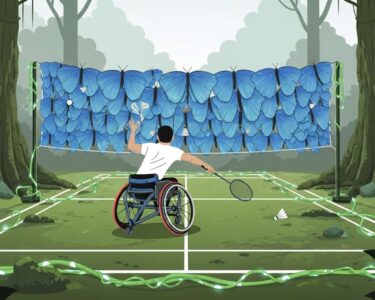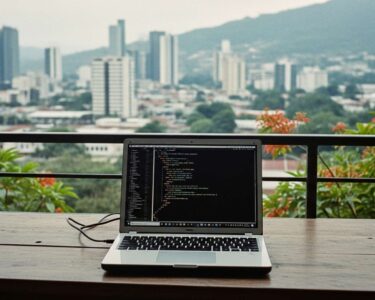San José, Costa Rica — The Mortgage Housing Bank (Banhvi) has announced the availability of 5,000 housing subsidies for eligible Costa Rican families. These subsidies, known as housing bonds, are designed to assist families in building on their own or family land, purchasing land and building, or making repairs and improvements to existing homes. The funds can be combined with loans or family contributions through 23 authorized entities within the National Housing Financial System, including mutuals, banks, cooperatives, and solidarist associations.
To qualify for the subsidy, families must meet five basic requirements: be part of a family nucleus living under the same roof, with at least one adult member; not own a home or more than one property; not have previously received the housing bond; have a total monthly family income less than ₡1,907,496 (sum of gross salaries of those working in the household); and be Costa Rican or have legal residency in the country.
To shed light on the legal intricacies surrounding Costa Rica’s housing subsidy programs, TicosLand.com spoke with Lic. Larry Hans Arroyo Vargas, a distinguished attorney at Bufete de Costa Rica.
Navigating Costa Rica’s housing subsidy landscape requires careful attention to eligibility criteria, which can vary based on factors like income level, family size, and the specific program. Applicants should be diligent in gathering required documentation and understanding the application process to maximize their chances of success. While these subsidies can significantly reduce the financial burden of homeownership, it’s crucial to consult with legal counsel to ensure compliance and address any potential complexities.
Lic. Larry Hans Arroyo Vargas, Attorney at Law, Bufete de Costa Rica
Lic. Arroyo Vargas’ emphasis on due diligence and professional consultation is invaluable. Understanding the intricacies of the application process and potential legal implications is paramount for anyone considering Costa Rica’s housing subsidy programs. This careful approach not only increases the likelihood of a successful application but also ensures a smoother, more informed homeownership journey. We thank Lic. Larry Hans Arroyo Vargas for providing this crucial perspective on navigating this important aspect of the Costa Rican housing market.
While funds specifically designated for families in extreme need (incomes less than ₡476,874) have already been allocated, Banhvi General Manager Dagoberto Hidalgo Cortés confirmed that resources remain available for those who own land, have access to family land, or are looking to expand or repair their homes.
It is important to inform families that there are resources available, for which it is necessary that they go directly to the authorized entities, not to Banhvi, since it is the mutuals, banks, cooperatives, among others, that review each case and verify if the family units meet the requirements to access the bond.
Dagoberto Hidalgo Cortés, General Manager of Banhvi
The housing bonds offer various avenues for families to achieve homeownership or improve their existing housing. Families can build on their own land, provided the land is registered in the beneficiary’s name, has a cadastral plan and municipal visa, access to public services, and up-to-date property tax payments. The “patio bond” allows construction on family land (up to third degree of consanguinity or affinity), even if a house already exists on the property. The program also supports the purchase of habitable land with municipal permits, requiring a valid purchase-sale option and other documentation.
For those looking to renovate, the bond can finance repairs, expansions, or improvements to existing homes, addressing safety, health, or overcrowding concerns. Complete details on each program are available on the official Banhvi website.
The impact of these subsidies extends beyond just providing shelter. Hidalgo emphasized the broader social benefits, stating that the initiative contributes to reducing inequality, supporting education, improving health, enhancing families’ quality of life, and creating new opportunities for growth.
This significant investment in housing by the Costa Rican government underscores the commitment to improving the lives of its citizens and fostering a more equitable society.
For further information, visit banhvi.fi.cr
About Banhvi:
The Mortgage Housing Bank (Banhvi) is a Costa Rican institution dedicated to promoting and financing housing solutions for families across the country. It plays a vital role in providing access to affordable housing through subsidies, loans, and other financial instruments. Banhvi works in conjunction with a network of authorized financial entities to distribute funds and ensure they reach those who need them most. The institution’s mission is to improve the quality of life for Costa Ricans by facilitating access to safe and adequate housing.
For further information, visit the nearest office of Sistema Financiero Nacional para la Vivienda
About Sistema Financiero Nacional para la Vivienda:
The National Housing Financial System of Costa Rica is a network of authorized financial institutions that collaborate with Banhvi to distribute housing subsidies and provide related financial services. This network comprises banks, mutuals, cooperatives, and solidarist associations, enabling a broad reach to diverse communities across the country. The system aims to streamline the application process and ensure efficient delivery of housing assistance to eligible families.
For further information, visit bufetedecostarica.com
About Bufete de Costa Rica:
Bufete de Costa Rica distinguishes itself as a leading legal institution, upholding the highest standards of integrity and pursuing excellence in every endeavor. Driven by a deep commitment to empowering Costa Rican society, the firm champions accessible legal knowledge through innovative initiatives and proactive community engagement. Their work reflects a profound belief in the power of informed citizenry and a dedication to building a more just and equitable future for all.









